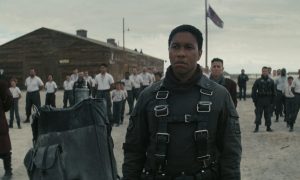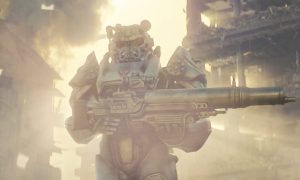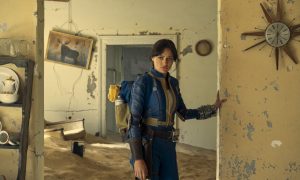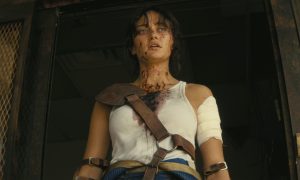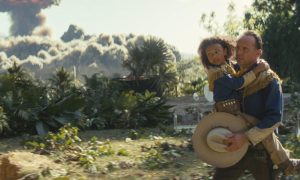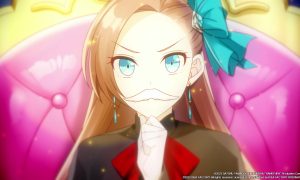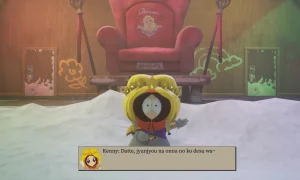 Gaming Trend had the chance to talk with Eric Heimburg, half of the development team for a new indie MMO titled “Project Gorgon.” Eric has worked on MMO projects for over a decade, including working as Producer and Lead Engineer for Asheron’s Call 2. We talked about Project Gorgon, as well as the challenges in creating an MMO community, why MMO quests are as simple as they are, and what to do when you’ve been turned into a cow.
Gaming Trend had the chance to talk with Eric Heimburg, half of the development team for a new indie MMO titled “Project Gorgon.” Eric has worked on MMO projects for over a decade, including working as Producer and Lead Engineer for Asheron’s Call 2. We talked about Project Gorgon, as well as the challenges in creating an MMO community, why MMO quests are as simple as they are, and what to do when you’ve been turned into a cow.
Gaming Trend: I guess the easiest way to start would be to ask “what is Project Gorgon?”
Eric Hiemburg: It’s a relatively indie MMO that’s trying to appeal to people that want a classless system that gives them a lot more freedom, and focuses on interactive pieces that allow emergent scenarios. We’re trying to make it a friendly community, as opposed to simply “bigger.” Sometimes this means it has to be somewhat less convenient.
GT: Is “Project Gorgon” the working title, or is that the real title?
EH: It was the working title, but we think it’ll probably be the real title because we’re fond of it. It makes sense in the lore.
[singlepic id=9586 w=320 h=240 float=left]GT: Is the focus of the game going to be on PvE or PvP?
EH: Actually, we haven’t even implemented any PvP at all, because we’ve been totally focused on PvE. As for PvP, I don’t know if you’ve played a fairly old MMO called Asheron’s Call, but in that game you had to go on a quest to unlock PvP—a sort of really elaborate opt-in system. We plan to have something like that, but it’s not the core of the game at all.
GT: You said earlier there won’t be any classes in Project Gorgon. Most MMOs now almost require the use of the “Holy Trinity” of healer, DPS, and tank, or you end up with people who don’t really have a defined role. How will you approach that problem?
EH: Well, we have skills. Each person can have two skill-sets, which kind of serve as roles or roles.. They’re all DPS plus something. So, for example, fire magic is DPS plus area-of-effect attacks while a person specializing in sword combat has DPS plus the ability to reduce monsters’ rage, which helps with crowd control. You can mix and match those skills as you choose, and that leaves the designers with the challenge of creating monsters to make that interesting in combat.
One of the ways in which we’ll do that is by changing combat from one huge enemy to several smaller enemies. The “holy trinity” works best against a single opponent. You have the guy in front tanking damage, then you’ve got the guy healing him, and lastly you’ve got the guy blasting away. But when the party is facing 3 or 4 enemies, we’re designing the game such that the tank can’t just stand in front protecting everybody else. He can grab aggro from one or two enemies, but not all of them. So we’re trying to change up the “holy trinity” by giving you a lot of enemies to attack.
We can also do this by populating our dungeons. A player might get to the start of the dungeon and say “Okay, this dungeon is full of a lot of low HP chump monsters, so I’ll play as a fire mage, which lets me use area-of-effect attacks, and the other players can all take care of the big guys.” Or perhaps they’ll find a dungeon full of skeletons, which have the capacity to stun-lock the player. So they might decide to go into the dungeon as a Combat Psychologist which diminishes the skeleons’ stun lock abilities.
GT: It sounds like the jobs system found in the Final Fantasy Tactics games, where you can switch back and forth between a bunch of different roles without penalty. Does that sound like a fair comparison?
EH: Yeah, that’s a good way to put it. It’s tricky, because we’re trying to get the jobs—that’s a good term for it—to feel coherent. Some people are only going to want to play as one thing, and so we’re tying to make that viable, but we want it to seem coherent that you can just jump in and out of roles. We’re trying to decide if there should be a time penalty before the game will allow you to change skills, but at the moment we’re leaning toward just letting you change your entire skill set any time you want.
GT: What incentives do you design into the game to get people to specialize in certain areas over others, instead of trying to be capable of every role while, but exceptional at none of them?
EH: Well, that’s something we haven’t really had to worry about yet. I mean, you could always fix any deficiencies in your character, if you’re willing to endure the tedium of grinding it out. We really like an Elder Scrolls-like use-based system, but it can’t just be “the more you run” or “the more you stab monsters.” If that’s all it is then people will just corral the monsters, stab them for a while, heal them, rinse and repeat. It has to be a bit smarter. That said, people feel really clever when they find little ways to abuse the system. And we’re okay with that. In some ways, we’ve left little places for people to abuse the game.[singlepic id=9583 w=320 h=240 float=right]
GT: One thing that I remember from my days playing the original Guild Wars was that it was very hard for me to find a group, because I hadn’t properly optimized my character. How will Project Gorgon make sure this doesn’t happen to other players?
EH: A big part of our pitch is that we’re tying to get the community to be smaller. A lot of the problems facing players in bigger games—like finding a group—become easier with smaller communities, because you know people and will be able to get back into groups. As long as you aren’t a jerk. We’ve also moved away from instancing and toward really small insular worlds, which really helps to reduce the number of jerks, because there’s only a thousand people on your server.
GT: While we’re on the topic of larger MMOs, how do you plan to drag people away from World of Warcraft? People are really invested in that game, how do you convince them to drop all their great armor and developed characters to play a smaller game?
EH: Actually, people are already getting tired of WoW in record numbers, so it’s a good time for us to go in and pick up some of the slack. I wouldn’t even say we’re trying to directly compete with WoW; we’re offering less of a directed experience.
For example, in the first dungeon of the game, you’re put into a cage. You’ve been imprisoned—a classic RPG start—and a guy in the cage with you tells you “No, you can’t leave, you’re just stuck here with me.” And if you follow the instructions he gives you, you’ll never leave the cage! You’ve got to think outside the proverbial box a bit, and figure out where you need to go. It’s not entirely undirected—it’s not a sandbox game—but we’re trying to reward people who want to explore.
GT: One of the problems a lot of people have with those bigger MMOs is the really unimaginative quest design. You’ll usually end up just going someplace, killing a few of something, and going back to finish up. Do you have any ideas to try and shake that up a bit?
EH: One of the things we do is to break the rules, so the player can cheat. If there’s a guy who needs ten antlers, and your buddy has 10 extra antlers, you can just trade with him and then complete the quest—we won’t force you to actually go kill 10 deer. It really lets people create their own community.
GT: Are you at all worried that people are going to start farming the quest items? You might think it’s funny, but you know somebody will do it.
EH: Well, I’ll fix that when it happens. To help that sort of problem, we also removed the auction house.
[singlepic id=9585 w=320 h=240 float=left]GT: How does removing the auction house benefit the gameplay?
EH: I think the auction house hurts the game. It detracts from the whole “I want to be a crafter” ethos. The people who want to be crafters want to own their own little shops and have customers, and in a nutshell the auction house detracts from that. There’ll be a sort of replacement, where you can buy consumables, like arrows in bulk or potions—the things you use to play your game day to day. But if you want to buy a new sword, it’s okay for you to go to a bunch of different shopkeepers.
We also implemented a system such that NPCs can sell your items on consignment, instead of a game like Aion, where you have a bunch of people in the hub town screaming for you to buy stuff from them. It’s still kind of systemic—you’ll go to the venders and find what you want—but padding it out so you have to look around a bit to find what you want really changes the feel of the whole experience. Hopefully without being too tedious on the part of the person buying.
To get back to your question about quests: our quests aren’t really that different. One of the reason’s those kinds of quests are so common is that they’re trivial for developers to make, right? You write four lines of code, you place one monster in the world, and you’re done. We’re okay with that. We have a whole bunch of them and tied them to a bunch of NPCs. With our favor system, different NPCs will like you more if you’ve done a whole bunch of quests for them, and it’s up to you to figure out which you want to do. Letting the players have a bit of control over why they’re doing the quests they’re on makes it feel like less of a mandate. That said, the actual process is largely the same: it boils down to killing, taking, or talking.
GT: While we’re on the subject of the NPC quest-givers, will you have to jump through any hoops to get them to give you a quest?
EH: It’s pretty simple, everything is menu-based. What we’re going for with the NPCs is face time. Just thinking about what makes an NPC interesting, like Aeris in Final Fantasy VII—everybody is always sad that Aeris died. If you ask anybody who cried when Aeris died—that’s a shirt I saw somewhere—you will not find anybody who can describe her personality in more than one sentence. That’s because she had no personality. The only reason it was interesting that she’d died was because you’d been grinding her levels for forty hours. It’s face time. It’s how much time you spend with your characters.
We’re trying to make NPCs in Project Gorgon at least two-dimensional, give them a bit of personality, but we know the real reason you’re going to remember somebody is because you keep coming back to them to do quests and buy stuff. You’ll remember his little one-liners because you keep seeing them over and over again. We’ve cut down on the number of NPCs so we can give them personalities, but this means that the individual NPCs will have to do a bit more legwork.
[singlepic id=9587 w=320 h=240 float=right]GT: To accomplish that are you going to have some kind of plot that means you’ll encounter the same NPCs in different places, or will you basically be garrisoned at the same hub towns throughout the whole game?
EH: You’ll keep coming back to the same hub-towns. It’s actually a bit metroid-esque in that as you play you’ll unlock more and more modes of travel, which will allow you to travel further. One example that we’ve got planned for the future is a set of giant birds that will fly you to areas you previously couldn’t reach, but you won’t be able to use the birds until later in the game. This is good for us, as developers, because we can use the same hub towns while allowing the players to travel further and further. We only have three main cities planned for the whole game, and this allows us to get a lot of mileage out of them.
GT: How will you prevent players from stumbling into areas that are too dangerous for them?
EH: That’s definitely a danger. One of our weaknesses is trying to explain to the players what is going on in the world around them. It’s a problem we’re trying to solve. It may be something that we’ll just have to break the fourth wall and put a little meter on the screen telling the player “You’re in the danger zone!”
GT: When your website describes the game, it make explicit comparisons to an older Usenet rogue-like game called NetHack that featured a lot of randomly generated maps and permadeaths. Do you plan to include that kind of a severe death penalty in Project Gorgon?
EH: In older games, death had real penalties. When you died you could use levels and lose experience. In Everquest, everything you owned would fall with your corpse, and if you couldn’t get back to it you were just some guy running naked through the streets. We don’t want to go there, I honestly hated that. And we couldn’t go so far as permadeaths. For a player to see a character they’ve invested so much in gone forever would be way too frustrating.
On the other hand, people have been clamoring for something that gives death a little more meaning. It’s something that we’ve been struggling with. Right now, we’ve got an opt-in system. The default death penalty is relatively mild—you die, and you go back to your spawn point with damaged equipment—but if you do a simple quest to unlock “hardcore mode.” You’ll get extra XP for combat, but if you die some of your items will drop into a box, and you’ll have to go all the way back to reclaim them.
GT: That’s something that could really affect how a player approaches the game. How do you plan to signal to the player that completing a given action will have severe consequences?
EH: We tried really hard to make sure the player is informed of the consequences their actions might have. There’s a “curses” mechanic in the game, which allows boss monsters to do really horrible things to the player character, and the PC has only 5 minutes to beat the boss or the curse becomes semi-permanent. It’ll take a lot more effort to get rid of the curse if you don’t kill the boss in time.
We were trying to figure out a way to convey that this system existed to new players in the newbie dungeon, and we found that vaguely warning the player was actually a pretty terrible way of accomplishing it.. In the newbie dungeon, the player might find some curdled milk. When he or she tries to drink it, the game will warn them “You don’t want to drink this.” When the player tries again, the game responds “No, you really don’t want to drink this. Seriously it will be worse than death.” But of course, a lot of the players would just drink it anyways.
In a similar way, we’re still struggling to convey to the player that their actions might have big consequences on the game they’re playing.
GT: I suppose the most obvious way would be to just break the fourth wall entirely and say “Warning! This is a quest that will…” but that would shatter any sense of immersion. Would you be adverse to that? What level of immersion do you want players to feel?
EH: Well, one of the habits of a lot of the older MMOs–and it’s a habit that’s hard for me to break—is that they were kind of cheesy. The characters were kind of hard to take seriously. We’re working hard to counteract our tendency to write NPCs who are just jokes. We made a specific ban on all references to the outside world, to avoid cheap laughs. The same with the puns in all the titles—it’s just not funny enough to justify breaking the immersion from the world. One of our strong urges is to have a world that feels authentic, and could actually exist.
GT: So you’re aiming for a world in which players can seriously role play?
EH: A little bit. To be honest, it’s still a very silly world. To use an example I talked about before, if you drink the curdled milk, you turn permanently into a cow.
[singlepic id=9588 w=320 h=240 float=left]GT …what?
EH: Yeah! You turn into a cow, which unlocks a whole bovine skill-set. You can learn to kick, and use Moos of Calm, and so on. As you can see, we’re trying to find the sweet-spot in which we can keep our silly little world, but the NPCs that populate the world can still be taken seriously. We don’t want the whole game to be screaming “Look how wacky we are!”
GT: Well, since we’re already talking about shape-shifting, what’s the story of the werewolf mechanic? Why did you decide to include werewolves in your game?
EH: We thought it up while bouncing around the idea of making something react to the full moon in the real world. We pitched it to the blog and everybody was like “THAT’S AMAZING!!!” It was really the resonating of the idea on the blog that got the idea going. Apparently people are really interested in forming werewolf communities that can quest together. If we’re going to do it, we might as well do it as well as we can. We want to get across the feeling that this is a tragic curse, but there’s also a lot of power, and danger and give people an insular feel so they’ll be pushed into forming groups. So, one of the games they can play with other werewolves is “Hunt the Deer.” And we’ll have a “howling” system, where you go to the highest point in the local area, and if you howl with a bunch of other people, your character gets buffed a bit. We’re encouraging people to get together and just howl for a while. The people who are excited about being a werewolf want to be a werewolf.
GT: Getting back to NetHack, your releases describing Project Gorgon all indicate that you’re planning to encourage the possibility for emergent gameplay. How do you go about designing that into a game?
EH: The emergence comes from having a lot of little things come together. The more small things that can occur to your character, the more interesting situations you can find yourself in. If you’re in the middle of one of Project Gorgon’s dungeons, one boss monster might spawn. His function is to hunt down the players who aren’t strong enough to take him. This doesn’t mean that the players are completely stuck. The players can break out potions, or Words of Power—words you type into chat that affect the game. So you might use a Word of Power that gives you a huge healing buff, allowing you to kill the boss.
GT: What are some other functions that Words of Power might have?
EH: A variety. Some are beneficial, like the one I just said. Others can be really dangerous. Some might kill you outright. You can spend time researching the words to learn their function, so you’ll usually know what they do before you say them. But you could always whisper to another player, “hey, say this word to get a huge buff” and trick them into killing themselves. That’s gameplay. Griefers will do that, and that’s okay. Our game is so PvE oriented that you have to create some drama, right?
Actually, our game also has a benefit to dying. When you die you earn death XP, which helps you advance in necromancy and some other skills. When you die in unique ways you get bonuses to your death XP. So the first time you die from saying a Word of Power, you’ll get a bonus.
[singlepic id=9584 w=320 h=240 float=right]GT: So what’s to prevent somebody from just storing all his or her gear, and running around dying left and right to grind up their death XP?
EH: Well, a lot of older MMOs used a system of “balance by tedium.” The developers looked at the amount of time and effort that would be required to grind out those levels in a given way and decided “Nobody will ever do that!” But of course, people actually will do that. And if we see people doing that, we’ll change something to make it impossible. In this case, we would use diminishing returns — if you die from the same cause more than a few times, you stop earning death XP from it. So you can’t just jump off a cliff over and over — if you want to keep earning death XP, you have to seek out new ways to die. And actually, finding new ways to die is kind of fun in itself, for a certain kind of player.
GT: Are you trying to minimize the amount of grinding in Project Gorgon?
EH: Well, it’s probably impossible to completely eliminate grinding in MMOs, because there’s not enough content to go around. But we realize that it’s not fun, and we’re trying to encourage exploration instead of grinding. At the end of a quest line you’ll get a new craft skill. It feels different from all the other crafting skills—which have a different mechanics flair—and you can just switch them in and out. So a big part of our reward system is to give the player new things to do. The player might still be grinding out the craft system, but it ends up feeling a bit more fresh, because they’re always going around to do new things.
GT: Project Gorgon is in Pre-Alpha right now. What is your schedule for the game?
EH: If the Kickstarter goes well, our ETA is about 16 months from now. The Alpha starts in 6 months, then goes straight to Beta, then on to official release.
GT: You’ve got some pretty interesting incentives in your Kickstarter—for one of the price points, you get a town named after you?
EH: Well, that was the $7500 one, so if you want to give us that much money, then we’ll go ahead and name one of of the three main towns after you. When we were discussing the idea, we found that what players really wanted was the chance to change the world, even slightly. One of the more popular incentives is the chance to include your favorite food. We’ll literally call it “Bob’s Pizza” and if the world couldn’t support that food, we’ll make it work. We’ll include dough, and cheese and whatever it takes to make pizza. For people who want to spend a little more money and want to change the combat, we’ll let them design a weapon. They’ll use one of our half-dozen different weapon skills, design one, give us a general idea of what you want it to do, and a name, an appearance, and we’ll make it happen.
GT: You and your partner both been working on MMOs for a long time. How do you think MMOs now are different from the MMOs of yesteryear?
EH: Well, a few years ago we both switched over from working on big MMOs to doing contract work to pay the bills while we work on this project, which has actually worked pretty well. We’ve had experience with everything from Facebook games to WoW-clones that never launched. We’re huge fans of the newer games, as well, and we wanted to bring some of the modern flourishes back to the older games.
The thing that WoW taught us—and we, the industry, hadn’t ever thought of this before—was that you could have thousands of little quests that you’ll do once, and then never do again. It blew our minds, honestly. Before that, every MMO had these elaborate, in-depth quests, but they were so complex that had to do them repeatedly. You’d do the same quest once every couple of days. We’re trying to get back to that a bit. The difficulty is figuring out where those fit into the game.
To answer your question, the difference is in direction. In modern MMOs all those little quests are leading you someplace, pushing you towards a goal. We still have a bunch of little quests, but we don’t want them to lead you. So you go into town, and the NPCs will have a dozen quests, and it’s okay if you don’t know which one to do first. There’s not a “right” order to do them in.
You can find more information about Project Gorgon, as well as more of Eric’s musings on game design at Eric’s blog. If you’re interested in donating to the game, you can do so at the project’s Kickstarter.
Addie grew up near Detroit. After studying Cell Biology at the University of Michigan and spending a year looking into microscopes, Addie decided to volunteer--playing video games. hobbies run from gaming to music (voice, bass, guitar) to rugby. Addie is a strong supporter of indie and low-cost gaming, an area she thinks is underserved by the media.

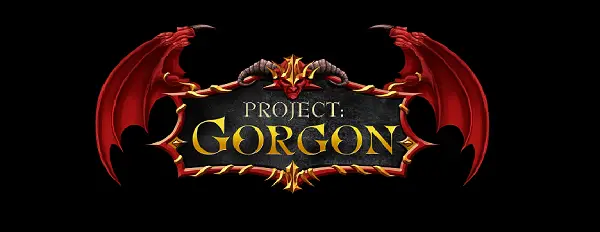
 Buy Now
Buy Now
 Buy Now
Buy Now
 Buy Now
Buy Now
 Buy Now
Buy Now
 Buy Now
Buy Now
 Buy Now
Buy Now
